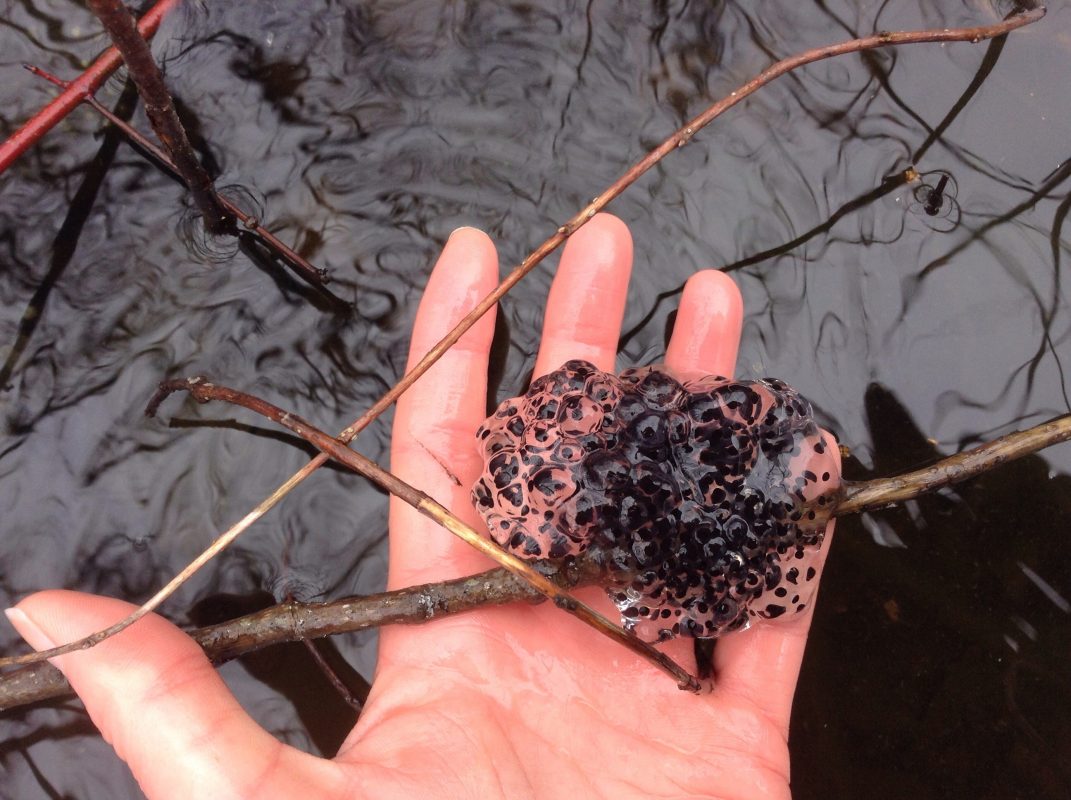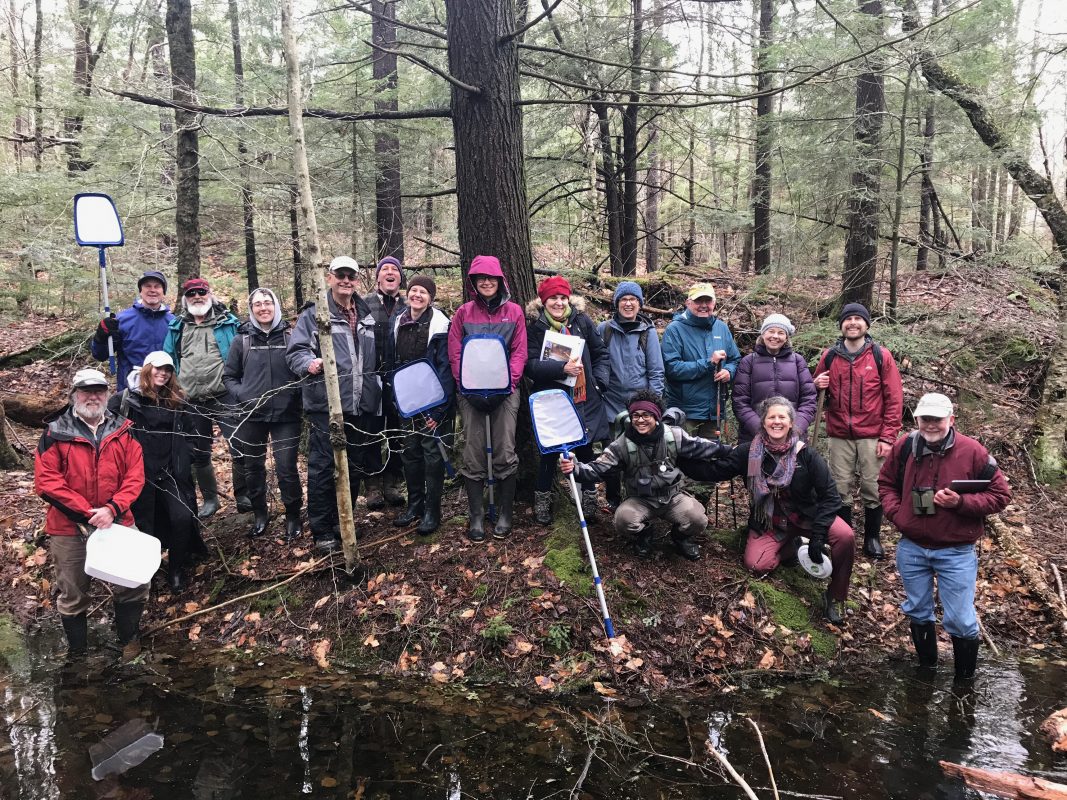In spring, as the snow melts and the warm rains fall, many a nook and cranny fills with water. What was once simply a dip in an upland forest may now be a shallow wetland; a vernal pool teaming with life.
Vernal pools are easily overlooked as they dry out during the summer. But they offer vital breeding habitats to several species of amphibians in the spring. These species choose vernal pools over other wetlands because there are no predatory fish to eat their eggs.

Early this March, community members gathered to listen to a presentation by local naturalist Charley Eiseman on the critters—frogs, toads, salamanders, fairy shrimp—that are found in vernal pools. After the presentation, people learned from volunteer participants in last year’s Vernal Pool Plunge, a three-day training hosted by Hilltown Land Trust and the Wild and Scenic Westfield River Committee that taught representatives in sixteen towns how to certify vernal pools.
Vernal pools offer a variety of environmental benefits as well. They sequester carbon, purify water, and retain water during flood and storm events. Certifying vernal pools is a way to protect these natural areas from harm. Since the 2019 Plunge training, volunteers have certified seven vernal pools.
There is still more work to do! Fewer than 1 in 8 mapped potential vernal pools in Massachusetts are certified. You can find resources on vernal pool certification and learn more about vernal pools and the Vernal Pool Plunge here on our website.
We are planning another Vernal Pool Plunge training in 2021! Please contact us if you would like to become a volunteer vernal pool certifier or if you are interested in having a trained representative investigate possible vernal pools on your land.

